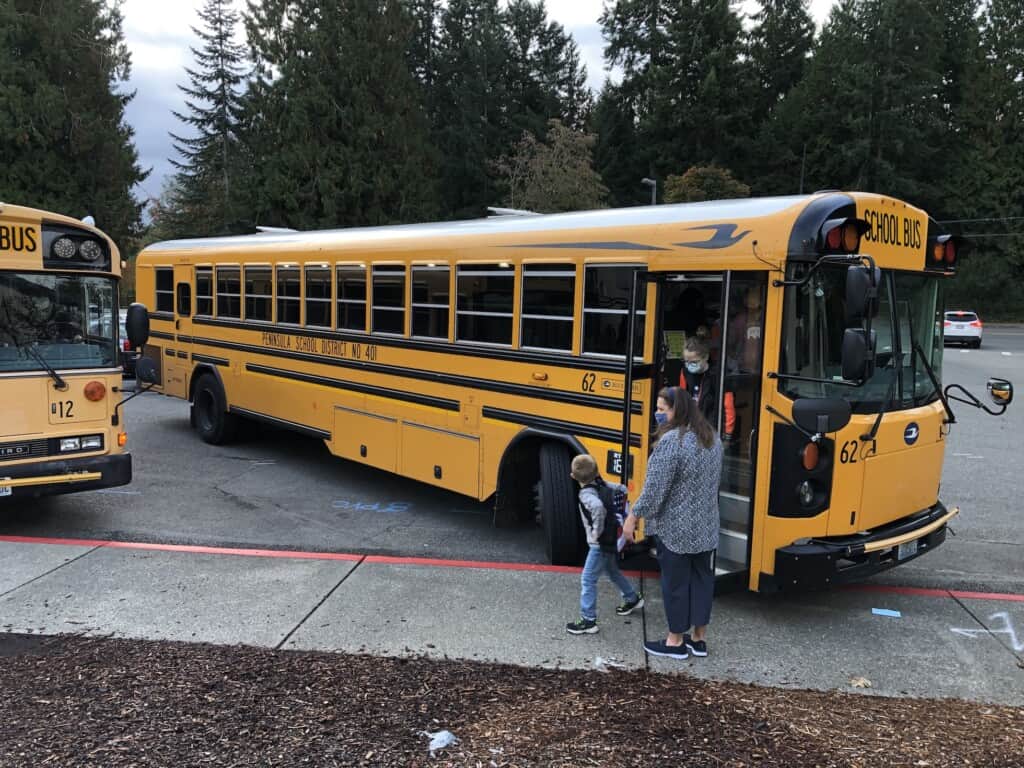Community Education
School District plans operations, security and tech levies for February ballot
Peninsula School District’s local operations levy, which supplements state funding for basic education, expires at the end of 2023. District officials aim to replace levy funding, which accounts for about 18% of PSD’s budget, by seeking voter approval of a new levy on Feb. 14, 2023.
Education Sponsor
Education stories are made possible in part by Tacoma Community College, a proud sponsor of Gig Harbor Now.
The district’s finance director has also recommended running a Safety, Security & Technology Capital Projects Levy.
The school board on Thursday gave a “first reading,” or preliminary public review, to both levy resolutions. The board will vote Nov. 9 whether to place the measures on the February special election ballot.
Levy details
The proposed three-year Educational Programs and Operations Replacement Levy would generate $27 million in 2024, $28 million in 2025 and $29 million in 2026.
The levy would cost taxpayers estimated rates of $1.13 per $1,000 of assessed property value in 2024, $1.12 per $1,000 in 2025 and $1.11 per $1,000 in 2026. The actual levy rate is based on assessed value of property within the district calculated by the assessor in the year before each levy collection.
The security and technology levy would generate $6 million in 2024, with amounts increasing annually to just under $7 million in 2029 for a total of $39,339,000. The estimated tax rate is a flat 25 cents per $1,000 of assessed value throughout the levy’s term.
Local levy fills critical gaps
School districts can use local operations levy dollars for “enrichment” — that is, spending over and above the state’s definition of basic education. Chief Financial Officer Ashley Murphy said local levy funding fills the gap between what the state considers “fully funded” basic education and actual costs necessary for quality of education and safety.
“They didn’t fully hit the mark when they said ‘You’re fully funded,’” Murphy said in a presentation to the board.
Some districts qualify for extra funding from the state and federal government. But Peninsula, a “low-poverty,” less-diverse district, is more reliant on its local levy, Murphy said.
Peninsula uses levy funding to pay for additional teachers, paraeducators, counselors, nurses and other staff it considers essential.
Examples of other levy uses are: professional development for staff, safety and security, extracurricular activities such as athletics and after-school activities, and preventive routine maintenance projects.
Tech levy for ’21st Century’ needs
The proposed security and technology levy would be earmarked specifically for security and technology equipment and software (not staffing) and would supplement the operations levy, Murphy said.
The tech levy would be used to upgrade students’ devices “in line with 21st Century industry standards,” according to district documents.
The levy would fund technology infrastructure improvements and safety upgrades to systems such as paging, cameras and door locks. It would also pay for enhanced cybersecurity, which has become a critical need, according to the district’s IT director.
Enrollment down since pandemic
Taxpayers in 2022 paid $1.32 per $1,000 of assessed value on the current operations levy. They also paid 69 cents per $1,000 on the district’s bond for a total local school tax rate of $2.01 per $1,000 of assessed value.
The 2020 levy ballot stated an estimated rate of $1.50 per $1,000, but loss of students during the pandemic meant Peninsula couldn’t collect the full dollar amount voters approved. The state caps levy collections, which in Peninsula’s case are based on a per-pupil allotment. The district had to do a “rollback” in 2021, 2022 and (upcoming) in 2023, collecting a total of $3 million less over the three years.
Murphy said the estimated tax rates on the proposed operations levy are based on official student enrollment for this school year. Enrollment is still lower than before the pandemic but is rebounding slowly.

Two Peninsula school board positions are being contested in the Nov. 2 general election. Ed Friedrich / Gig Harbor Now

